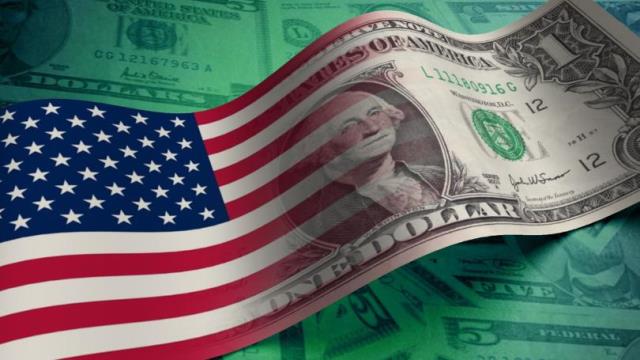The US economy slowed down significantly during the first three months of the year as inflation and interest rate rises set in to an economy that was widely anticipated to slow down even more. The first quarter had a 1.1% annualized increase in the gross domestic product, which is a measure of all goods and services generated during the time.
According to CNBC on Thursday, the Dow Jones survey of economists found that they had projected 2% growth.The growth rate came after a fourth-quarter GDP gain of 2.6%, which was a portion of a year-over-year increase of 2.1%.
The survey also revealed that the personal consumption expenditures price index, a frequently watched inflation indicator by the Federal Reserve, grew by 4.2% as opposed to the projected 3.7%. The U.S. economy in the late 1970s and early 1980s saw “stagflation,” which is frequently defined as high inflation and weak development. Major indices were pointing to an upward opening for stocks, which initially showed little reaction to the data. Treasuries’ yields rose.
According to the research, the slowdown in growth was caused by a drop in private inventory investment and a decrease in nonresidential fixed investment. The headline number was reduced by 2.26 percentage points due to the slowdown in inventories.
Consumer spending as measured by personal consumption expenditures increased 3.7per cent and exports were up 4.8 per cent. Gross private domestic investment tumbled 12.5 per cent.
“The U.S. economy is likely at an inflection point as consumer spending has softened in recent months,” said Jeffrey Roach, chief economist at LPL Financial. “The backward nature of the GDP report is possibly misleading for markets as we know consumers were still spending in January but since March, have pulled back as consumers are getting more pessimistic about the future.”
Argentina to use Yuan instead of Dollars to pay for Chinese goods
To conserve its decreasing foreign reserves, Argentina will pay for Chinese goods in yuan rather than US dollars, Economy Minister Sergio Massa announced on Wednesday.
According to Massa, the South American nation will be able to “program a volume of imports in yuan worth (the equivalent of) more than $1 billion from next month,” according to AFP. Massa made the announcement at a meeting with China’s ambassador Zou Xiaoli in Buenos Aires. This would “replace” Argentina’s usage of its US currency reserves.











